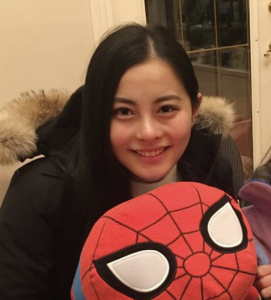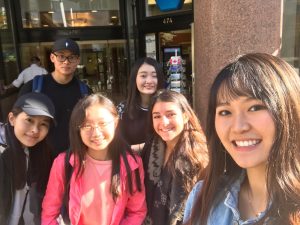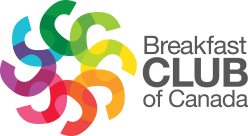Breakfast Recipe Book for Canadian Children
About Us
Natalie Sousa:
 My name is Natalie Sousa and I am currently in the dietetics program in year 3 of 5! I got into this program because I am passionate about prevention within healthcare and management of chronic diseases through diet and lifestyle choices. I choosethis project because I am interested in how the program targets school children and makes healthy eating more enjoyable for them and more affordable for the parents. From this project I hope to gain more knowledge about working within a community and with a community partner.
My name is Natalie Sousa and I am currently in the dietetics program in year 3 of 5! I got into this program because I am passionate about prevention within healthcare and management of chronic diseases through diet and lifestyle choices. I choosethis project because I am interested in how the program targets school children and makes healthy eating more enjoyable for them and more affordable for the parents. From this project I hope to gain more knowledge about working within a community and with a community partner.
Cynthia Zhu:

My name is Cynthia Zhu and I am currently in the third year ofGlobal Resource System program. I am interested in traveling and exploring different cuisines from around the globe. As a foodie, I have always loved food and have the passion to learn about nutrition and healthy lifestyle. I believe that making healthy daily food choices is essential for every child’s growth and development; so, I really appreciate the chance to be a part of the Breakfast Club of Canada project to help children have delicious and healthy meals.
Zhuyun(
Michelle) Yang:

I am a fourth year Nutritional Sciences student. I’m passion about maintaining health over lifespan through keeping healthy eating. I love children and I have the passion for helping kids with malnutrition. Children are most vulnerable to undernutrition and they are facing threats to their nutritional intake from diseases. I love to work with kids and help them out. Based on my previous volunteer experience at a dental clinic, I realized that providing high-quality care to patients was a medical imperative. I want to get involved in health care profession and make some impacts on ensuring more satisfactory patient experience.
Guoling Fan:
 My name is Guoling Fan, I am a third year nutritional science student who loves cooking, baking and doing any handcrafts at home. It has been about 2 years since I came here to Canada, and I gained more than 5kg in the first year. Since then, I started to take care of my own diet, realizing how bad my food choices used to be. Just like all the other students in our faculty, my life has always been revolving around food. I am glad that I am in this faculty because I can actually learn things that I am interested in. Forget to mention that my biggest interest is watching dog videos on facebook.
My name is Guoling Fan, I am a third year nutritional science student who loves cooking, baking and doing any handcrafts at home. It has been about 2 years since I came here to Canada, and I gained more than 5kg in the first year. Since then, I started to take care of my own diet, realizing how bad my food choices used to be. Just like all the other students in our faculty, my life has always been revolving around food. I am glad that I am in this faculty because I can actually learn things that I am interested in. Forget to mention that my biggest interest is watching dog videos on facebook.
Chenyu Wang:
 Hi! My name is Chenyu Wang but you can just call me Ric. I grew up in Vancouver and went to Waterloo for university to study computer science.In my early university life I realized that health is extremely important and as a result I transferred to UBC to study nutrition. Right now I am a fourth year FNH student just trying to make my last year of university memorable. I love our project with the Breakfast Club of Canada and believe our group will work together smoothly. I look forward for a great year!
Hi! My name is Chenyu Wang but you can just call me Ric. I grew up in Vancouver and went to Waterloo for university to study computer science.In my early university life I realized that health is extremely important and as a result I transferred to UBC to study nutrition. Right now I am a fourth year FNH student just trying to make my last year of university memorable. I love our project with the Breakfast Club of Canada and believe our group will work together smoothly. I look forward for a great year!
Yilin Cao:
 My name is Yilin Cao and I prefer the name Ellen. I am in the third year of nutritional science. I was transferred from Sauder two years ago when I found I am more interested in science than business. Learning pure chemistry or biology may be tedious, but nutrition is so related to our daily lives. I would easily feel achieved if I eat healthily or I help others to improve their eating habits, even just a little bit. I am interested in cooking as well and enjoy cooking creative and nutritious food. Our project provides me a chance that I can combine my interests together, which makes me so excited. Anyway, I am looking forward to seeing any outcomes three months later.
My name is Yilin Cao and I prefer the name Ellen. I am in the third year of nutritional science. I was transferred from Sauder two years ago when I found I am more interested in science than business. Learning pure chemistry or biology may be tedious, but nutrition is so related to our daily lives. I would easily feel achieved if I eat healthily or I help others to improve their eating habits, even just a little bit. I am interested in cooking as well and enjoy cooking creative and nutritious food. Our project provides me a chance that I can combine my interests together, which makes me so excited. Anyway, I am looking forward to seeing any outcomes three months later.
 Left to Right: Michelle, Chenyu, Ellen, Cynthia, Natalie, and Guoling.
Left to Right: Michelle, Chenyu, Ellen, Cynthia, Natalie, and Guoling.
Group Interests, Goals, and Reasons for Choosing the project
Our group chose this project because of our interest and passion in nutrition. As we are all in the Land and Food Systems faculty it is no surprise that we have an interest within the food system. All of us are pursuing careers within nutrition. With this project we hope to gain experience working with a community partner within a nutrition education setting. Moreover, we believe that breakfast is the most important meal of the day. It is especially necessary to kids because it enables them to concentrate better, study wiser, and improves sport performance. However, In Canada, 1/5 of the children start the school with empty stomachs because of a lack of access to nutritious food (Breakfast Club of Canada, 2017). That means nearly 1 million children are at risk of going to school on a empty stomach (Breakfast Club of Canada, 2017). Therefore, we hope to promote the importance of breakfast and prevent school kids from starting their day on a empty stomach.
Project Objectives and Community Organization About our Community Partner
Our community partner, Breakfast Club of Canada, is a non-profit and nation-wide organization which devotes to help children access to healthy morning meals with their office located in the heart of downtown. They have served almost 33 million breakfasts per year and have feed about 204,000 students per day in Canada. They believe “serving students a healthy, balanced breakfast help them develop better social skills and makes them more inclined to learn” (Breakfast Club of Canada, 2017). In this organization, they have a lot of volunteers to help schools to prepare students’ meals. However, one tool they are lacking is a easy and nutritional recipe book that can be used within the schools. Therefore, our group members who study food and nutrition, and have the passion to support our community, are willing to work with the Breakfast Club of Canada to create a fun, healthy and affordable recipe book for young students.
Our project is dedicated to achieve the following objectives:
- To develop an accessible, nutritious, and creative recipe book that schools can use to serve healthy breakfasts to students
- To overcome the barriers to succeed in involving more kids who are food-insecure and even food-secure
- To highlight nutrient aspects of different ingredients and guide kids to choosing more nutrient-dense and healthy meals
- To consider culture factors affecting food preferences and incorporate the idea of creating inclusive dietary practice
- To provide varieties of food recipes that apply to kids with different food preferences and dietary restrictions
Goal of The Project
The goal of this project is to create a fun recipe book that will be available for schools to use to provide healthy, and affordable food ideas. We believe informing children about the benefits of healthy eating at a younger age will benefit them as they grow up and develop habits, especially relating to nutrition. Early life influences can impact their health status later on, and developing healthy eating habits can be beneficial.
First Impressions
When we met with our Community Partner, Robin Ryan, it was very clear how enthusiastic they were about our involvement and they made us feel welcomed and excited to be involved. During the meeting, our Community Partner had mentioned that they wanted us to include accessible and cheap ingredients found in their community. Specifically they mentioned that they usually had eggs and milk supplied by other donation organizations. Since Breakfast Club of Canada is a non-profit organization, they suggested that we make our recipes as simple as possible considering volunteers’ limited skills. Related to what we learned in lecture about asset-based community, of which the main idea is to focus on what you have and stop looking at what you do not possess in a community (van deur Walt et al., 2014), we got the idea that asset-based community is a kind of development process by identifying and leveraging the existing assets to create their own economic opportunities (Mathie & Cunningham, 2003). Taking the advantage of present resources and assets is more sustainable than importing resources from others in the respect of economy and ecology. Applying the knowledge to our project, the budget, ingredients and skills of operators are all limited, so our recipes have to be appropriate and accessible to adapt to the existing limited resources for a sustainable development.
In the last lesson, we learned about food justice. Food justice is a broad term. As LaDonna mentioned in TED, food justice involves all the processes in the food systems (Redmon, 2013). For example, food justice is not only the accessibility to nutritious, sufficient and affordable food, but also about the expectation that all the workers associated with food are paid fairly. To address an even broader aspect, food justice is a historical and worldwide problem since there are still people in some areas like Africa starving because of no available food (Redmond, 2013). Related to what we learned from last lesson, our project in some extend is to deal with the food injustice; because our community partner, the program analyst in breakfast club of Canada, told us that this program is mainly focusing on helping students who are in food insecurity. We are expected to write creative and nutritious breakfast recipes with a very limited budget for these students.
At the end of our meeting and just before we left, our community partner stopped us and asked us if we could manage to meet in a local elementary school in early October and chace casual conversations with the kids there. This reminded us of Ernesto Sirolli’s TED talk, where he advises that people who trying to help should first “shut up and listen”, so that they are not arriving in community with their own idea and trying to find out what community wants to have (Sirolli, 2012). We appreciate that we are able to have personal interactions with the kids in this program, listen to what they really want to do and make changes to our project according to their own preferences. As what Ernesto Sirolli says in his TED talk, we want to communicate with them as a friend, so we can get the best results we both want. This emphasizes the importance of being kind and friendly, especially when we are working with kids. We should be able to help kids to express their feelings feeling comfortable with talking with us.
References
Breakfast Club of Canada – Home. (2017). Breakfast Club Canada – Club des petits déjeuners. Retrieved 22 September 2017, from http://www.breakfastclubcanada.org
Gottlieb, R., & Joshi, A. (2010). Food Justice. MIT Press.
Redmond, L. (2013, March 4). Food + Justice = Democracy: LaDonna Redmond at TEDxManhattan 2013 [Video File]. Retrieved from https://www.youtube.com/watch?time_continue=694&v=ydZfSuz-Hu8
Sirolli, E. ( 2012, November 26). Ernesto Sirolli: Want to help someone? Shut up and listen! [Video File]. Retrieved from https://www.youtube.com/watch?v=chXsLtHqfdM
Van der Walt, L., Hawley, A., Carter, S. (2014, October 16) ABCD Animation [Video File]. Retrieved fromhttps://www.youtube.com/watch?v=_muFMCLebZ4
Alison, Mathie., Gord, Cunningham. (2003) From clients to citizens: Asset-based Community Development as a strategy for community-driven development. Development in Practice. 13:5, 474-486. Retrieved from http://www-tandfonline-com.ezproxy.library.ubc.ca/doi/abs/10.1080/0961452032000125857
Resources
Breakfast club of Canada homepage: http://www.breakfastclubcanada.org/
